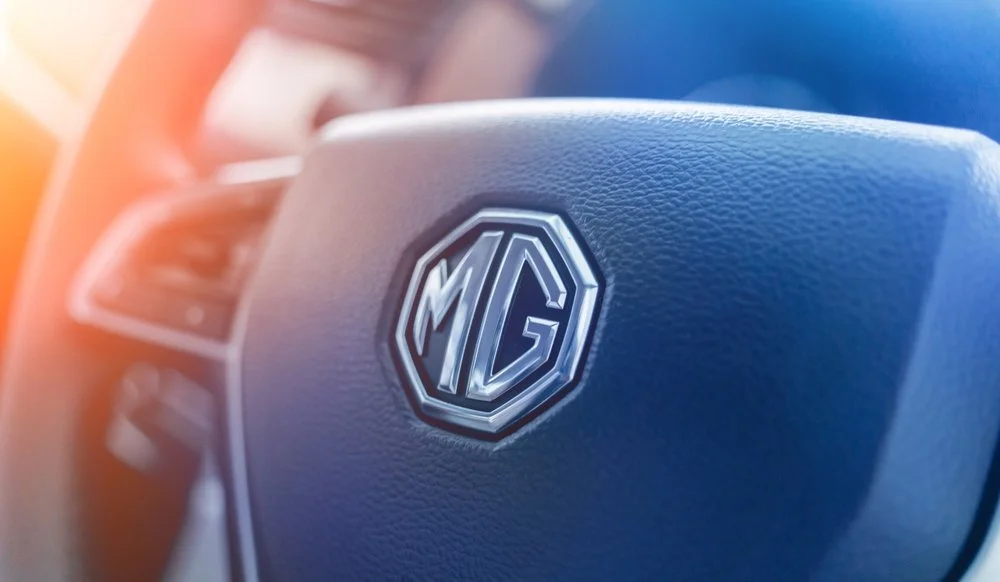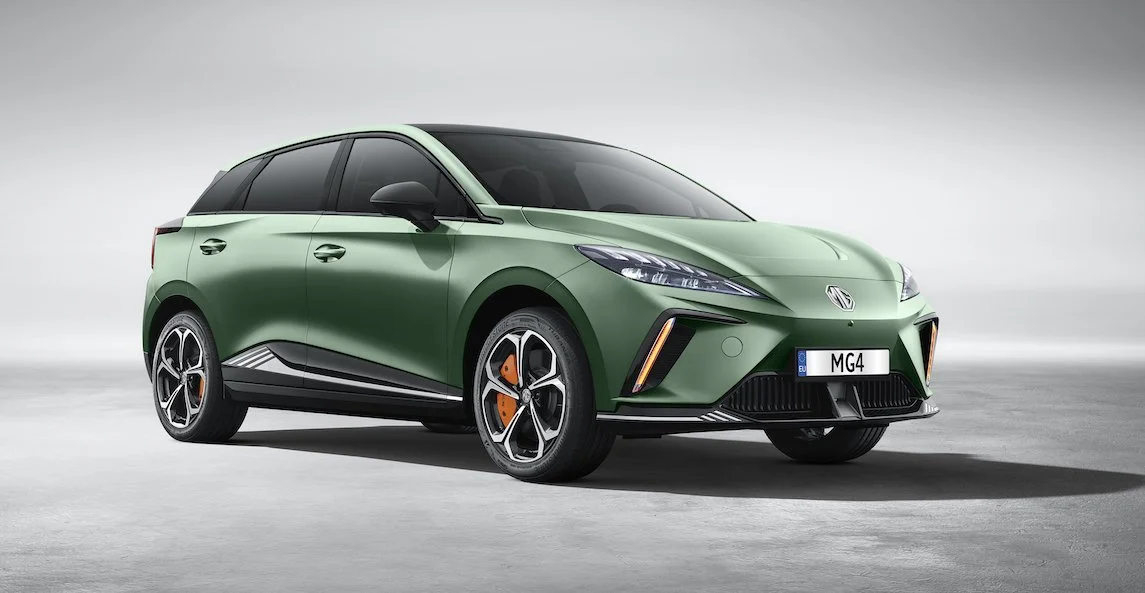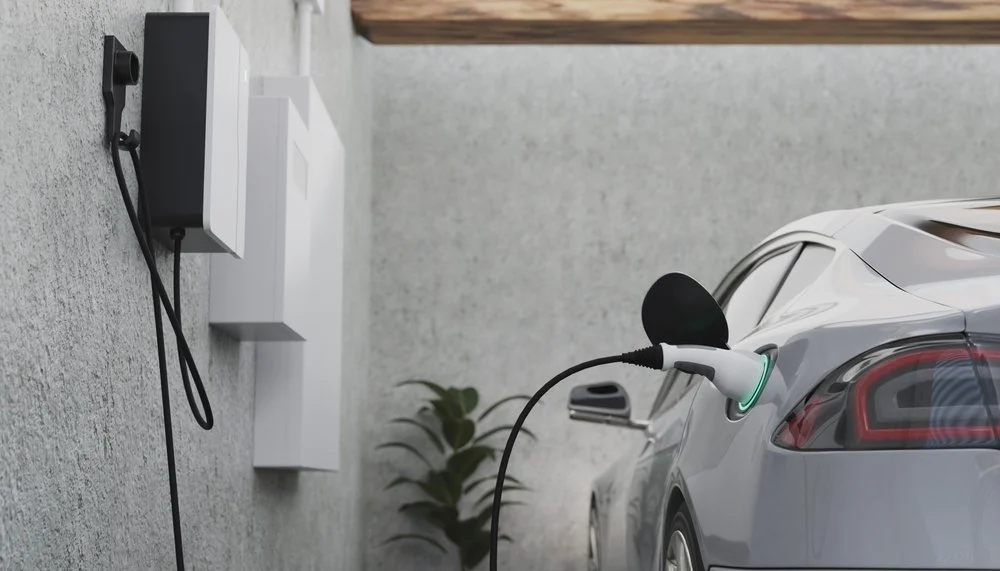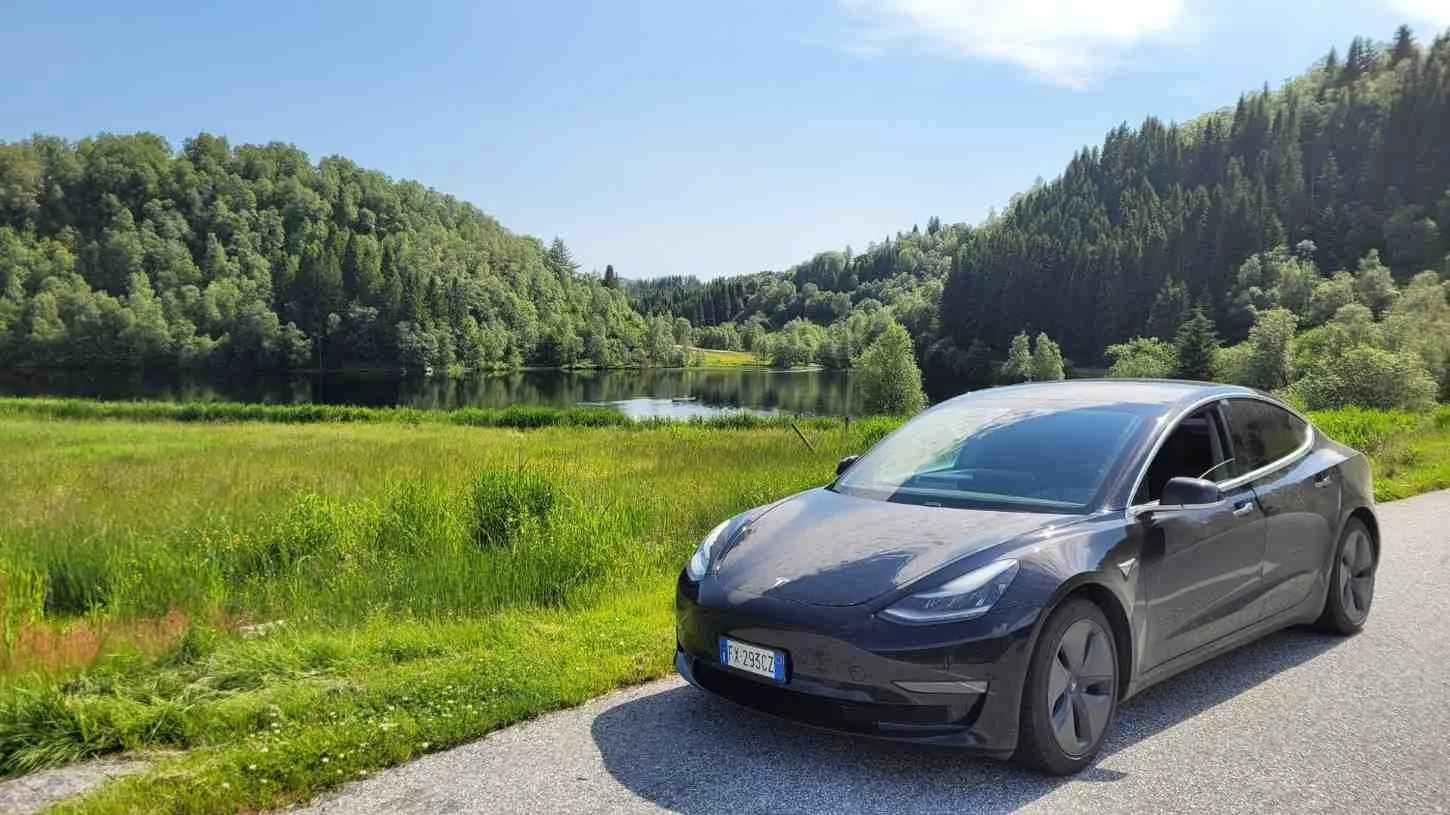Why Britain's MG Still Isn't Eligible for the UK Electric Car Grant
Source: Shutterstock
The UK Electric Car Grant has been live for over a month, yet one of Britain's most recognisable automotive marques remains conspicuously absent from the eligibility list. Despite MG's century-long British heritage and strong position in the UK electric vehicle market, the iconic octagon badge has failed to secure government grant approval – raising questions about the scheme's criteria and their real-world impact.
The Heritage Paradox
Founded in Oxford in 1924, MG embodies British automotive spirit more than most. The brand built its reputation on affordable sports cars and practical family vehicles, becoming synonymous with accessible motoring for generations of UK drivers. Today's MG continues that tradition in the electric era, offering some of the UK's most competitively priced EVs including the popular MG4 and MG ZS EV.
Yet this British brand – now owned by Chinese automotive giant SAIC Motor – finds itself locked out of the very government scheme designed to accelerate UK electric vehicle adoption.
The Science-Based Targets Barrier
The Electric Car Grant's eligibility hinges on manufacturers meeting strict Science-Based Targets (SBT) validation. These requirements demand:
42% emissions reduction by 2030 from 2020 baseline levels
Net-zero commitments by 2050 with verified interim milestones
Third-party validation from the Science Based Targets initiative
Transparent supply chain reporting including battery sourcing
For Band One classification offering the full £3,750 grant, manufacturers must additionally demonstrate renewable energy usage above 80% and verified carbon-neutral manufacturing.
The scheme's carbon intensity assessments particularly penalise vehicles or batteries assembled in countries with high fossil fuel usage in electricity generation – effectively targeting Chinese manufacturing operations where MG produces its electric vehicles.
MG's Response: Going It Alone
Rather than waiting for government approval, MG has taken matters into its own hands. The company launched its own £1,500 discount programme, matching the Band Two grant amount available to approved manufacturers. This demonstrates MG's commitment to UK affordability whilst highlighting the frustration of exclusion.
However, this independent discount cannot be combined with electric car salary sacrifice schemes in the same beneficial way as official grant-eligible vehicles, potentially limiting savings opportunities for UK employees.
The Competitive Impact
While MG navigates eligibility challenges, competitors have secured their place on the approved list. The latest government announcements confirm 24 models now qualify for the £1,500 Band Two grant, including:
French Manufacturers:
Citroën ë-C3, ë-C4, ë-C5, and ë-Berlingo
Renault 5, Scenic, Megane, and Alpine A290
Peugeot e-208, e-2008, and e-Rifter
German Manufacturers:
Cupra Born
British-Built Options:
New Nissan Micra and Ariya (Nissan's Sunderland plant)
Vauxhall Corsa Electric, Mokka Electric, and Grandland Electric
This creates a challenging competitive landscape where MG vehicles, despite often offering superior value propositions, face an artificial £1,500 disadvantage against grant-eligible alternatives.
Still Waiting: Other Notable Absences
MG isn't alone in facing exclusion. Several other manufacturers and models remain absent from the eligibility list:
Chinese Brands:
BYD (despite rapid European expansion)
Polestar (Geely ownership raises similar concerns)
Smart (Geely-owned, though some models under review)
Premium Manufacturers:
Tesla (likely due to pricing above £37,000 threshold for most models)
BMW, Audi, Mercedes (premium pricing concerns)
Lucid, Genesis, and other luxury brands
Traditional Manufacturers:
Ford (beyond the Puma Gen-E, most models exceed price caps)
Hyundai and Kia (awaiting sustainability validation)
The Salary Sacrifice Alternative
For UK employees, electric car salary sacrifice remains the most significant savings opportunity regardless of grant eligibility. With Benefit-in-Kind rates at just 3% for 2025/26, salary sacrifice schemes offer 20-50% savings on electric vehicle costs.
MG vehicles available through The Electric Car Scheme include competitive monthly payments that often undercut grant-eligible alternatives even without government support. The MG4 EV, for instance, provides exceptional value through salary sacrifice arrangements.
Looking Forward: Will MG Make the Cut?
The Department for Transport continues reviewing manufacturer applications, with new approvals expected throughout 2025. For MG to join the eligibility list, SAIC Motor would need to demonstrate:
Comprehensive Science-Based Targets validation
Improved supply chain carbon intensity reporting
Enhanced renewable energy usage in manufacturing
Transparent sustainability commitments aligned with UK climate goals
The brand's strong UK presence, including its Longbridge heritage centre and extensive dealer network, strengthens the case for inclusion. However, the government's focus on supply chain sustainability and manufacturing carbon intensity creates genuine obstacles for Chinese-manufactured vehicles.
The Bigger Picture
The Electric Car Grant's eligibility criteria reflect broader UK industrial policy balancing climate objectives with economic competitiveness. While supporting domestic and allied manufacturing makes strategic sense, excluding competitively priced options like MG potentially limits consumer choice and affordability.
For UK drivers, the message remains clear: explore all available savings options. Whether through government grants, manufacturer discounts, or salary sacrifice schemes, multiple pathways exist to make electric vehicle ownership more affordable.
What This Means for Consumers
Despite grant exclusion, MG continues offering competitive electric vehicles with strong value propositions. The brand's own discount programme ensures price competitiveness, while availability through salary sacrifice schemes maintains significant savings potential.
For employees considering electric vehicle adoption, the combination of salary sacrifice benefits and MG's competitive pricing often delivers superior value compared to grant-eligible alternatives – particularly when considering total cost of ownership including charging costs and maintenance.
The UK Electric Car Grant may have overlooked this British automotive icon for now, but MG's commitment to UK affordability continues regardless. As the scheme evolves and manufacturers adapt to sustainability requirements, we may yet see that famous octagon badge join the eligibility list – where many would argue it rightfully belongs.
Are you an employer?
BOOK A DEMOAre you an employee?
SEE AVAILABLE CARSYou might also like…
Last updated: 26/08/2025
Our pricing is based on data collected from The Electric Car Scheme quote tool. All final pricing is inclusive of VAT. All prices above are based on the following lease terms; 10,000 miles pa, 36 months, and are inclusive of Maintenance and Breakdown Cover. The Electric Car Scheme’s terms and conditions apply. All deals are subject to credit approval and availability. All deals are subject to excess mileage and damage charges. Prices are calculated based on the following tax saving assumptions; England & Wales, 40% tax rate. The above prices were calculated using a flat payment profile. The Electric Car Scheme Limited provides services for the administration of your salary sacrifice employee benefits. The Electric Car Scheme Holdings Limited is a member of the BVRLA (10608), is authorised and regulated by the FCA under FRN 968270, is an Appointed Representative of Marshall Management Services Ltd under FRN 667174, and is a credit broker and not a lender or insurance provider.
Copyright and Image Usage: All images used on this website are either licensed for commercial use or used with express permission from the copyright holders, in compliance with UK and EU copyright law. We are committed to respecting intellectual property rights and maintaining full compliance with applicable regulations. If you have any questions or concerns regarding image usage or copyright matters, please contact us at marketing@electriccarscheme.com and we will address them promptly.





